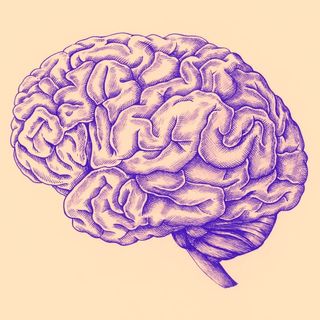
What Makes Us Want to Watch Scary Movies?
Your love for the horror genre might actually be good for you.

When Veronica was released on Netflix last year, most of the Internet had a visceral reaction. Directed by Paco Plaza, the Spanish supernatural horror film based on a true story of demonic possession was so scary, people were reportedly abandoning the movie halfway through. Which just made everyone else, including me, want to experience it for themselves. But if the reaction of most people was to turn the film off, why would that motivate others to watch it? Why do we love watching scary movies?
Personally, I like the challenge — I want to prove that I can handle whatever the genre can throw at me, from the gruesome gore of French teenage cannibals in Raw, to the quiet charisma of Hannibal Lecter in Silence of the Lambs. As anxious as I get while watching the films, the rush of adrenaline makes these movie experiences incredibly enjoyable. It turns out, all of this has a biochemical explanation — scary movies can actually help us deal with stress and improve our mood.
Just like exposure therapy used to cure phobias, watching scary movies might actually help you get over fear in real life. In her book, Scream: Chilling Adventures in the Science of Fear, self-described ‘fear researcher’ Margee Kerr came to a counterintuitive conclusion through her research: Watching horror movies actually decreases your anxiety. “Being a horror fan myself, this was a finding that made me think, of course! That had been my personal experience,” said Kerr. “I think it’s because of that recalibration of what’s registering as stressful. There’s a lot of stress before encountering something scary, but once it’s been encountered, you reset the bar at a higher set point. Now nothing else seems like a big deal.”
Related on The Swaddle:
Can Horror Movies Have Harmful Long‑Term Effects on Kids?
We’re able to handle our fears during movies because we know we’re in a controlled environment, intentionally triggering our fight-or-flight response. The more our anxiety is triggered, the more we are able to recognize our body’s stress signals, such as sweaty palms and an increased heart rate. And the better we’re able to manage our body’s responses to stress. Studies have found that stress, in short bursts, can actually help our brains, pushing us to an optimum level of alertness and cognitive performance. A researchstudy at the University of California, Berkeley, showed that acute stress improves the brain’s performance even after the situation is over. The findings suggested that stress hormones help the brain adapt to dealing with similar responses later in life.
Think of it like a vaccination for fear — we immunize ourselves by watching scary movies in small doses so that later, we know that we can handle our fear. Manageable amounts of stress help strengthen the immune system as well, increasing our resilience to stress. A study published in The International Journal on the Biology of Stress showed a significant link between watching horror movies and an increase in the body’s white blood cell count, indicating that the immune system was being triggered and might therefore have a better response time when actually threatened.
For people who love watching horror movies, the short-term pay off includes mood elevation — like the feeling after riding a roller coaster. Kerr’s theory, backed by scientific research, proposes that the mix of neurotransmitters coursing through our nervous systems when we watch scary movies (including hormones like dopamine and adrenaline) gives us a feeling of mild euphoria.
There’s also the social bonding, and sense of achievement that comes with going through an experience that’s stressful, according to Kerr. Which makes horror films all the more enjoyable to watch as part of a group, taking it as a challenge. We watched Veronica without turning the TV off and we survived (and increased our stress response levels in the bargain).
Of course, if you dislike the genre, arguably no amount of scientific proof of increased dopamine levels or immune system benefits can talk you into a marathon of The Ring.
Nadia Nooreyezdan is The Swaddle's culture editor. Since graduating from Columbia Journalism School, she spends her time thinking about aliens, cyborgs, and social justice sci-fi. She's also working on a memoir about her family's journey from Iran to India.
Related


You Can Actually Die of a Broken Heart
